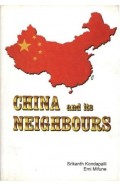Nero - The Man Behind the Myth
By: Thorsten Opper
-
Rs 14,395.50
- Rs 15,995.00
- 10%
You save Rs 1,599.50.
Due to constant currency fluctuation, prices are subject to change with or without notice.
The period during which Nero ruled over Roman society was one of profound change. The extent of the empire at the time was vast, having grown significantly during the previous century through conquest and annexation, and peace and prosperity followed years of bloody war. The role of Nero’s mother Agrippina in his accession to the throne is well-documented, but her expectations of great influence once Nero was in post were not met and the role of women, and family more widely, is considered in detail in this book.
In addition to familial conflict, Nero also had to confront the threat of rival powers and the assimilation of newly conquered territories, which provided him with the opportunity to prove himself as a strong military leader. Alongside military campaigns, he adopted ‘populist’ policies, was preoccupied with the beautification of the heart of his empire, which was subsequently devastated by fire, and enthusiastically engaged in theatre and entertainment.
Nero’s rule was curtailed by military rebellion in AD 68 and the embattled emperor ultimately committed suicide. His death brought to an end the reign of the Julio-Claudian dynasty, and the subsequent vilification of his memory and the removal and desecration of his image are an enduring, but misleading, legacy.
The period during which Nero ruled over Roman society was one of profound change. The extent of the empire at the time was vast, having grown significantly during the previous century through conquest and annexation, and peace and prosperity followed years of bloody war. The role of Nero’s mother Agrippina in his accession to the throne is well-documented, but her expectations of great influence once Nero was in post were not met and the role of women, and family more widely, is considered in detail in this book.
In addition to familial conflict, Nero also had to confront the threat of rival powers and the assimilation of newly conquered territories, which provided him with the opportunity to prove himself as a strong military leader. Alongside military campaigns, he adopted ‘populist’ policies, was preoccupied with the beautification of the heart of his empire, which was subsequently devastated by fire, and enthusiastically engaged in theatre and entertainment.
Nero’s rule was curtailed by military rebellion in AD 68 and the embattled emperor ultimately committed suicide. His death brought to an end the reign of the Julio-Claudian dynasty, and the subsequent vilification of his memory and the removal and desecration of his image are an enduring, but misleading, legacy.
Zubin Mehta: A Musical Journey (An Authorized Biography)
By: VOID - Bakhtiar K. Dadabhoy
Rs 892.50 Rs 1,050.00 Ex Tax :Rs 892.50
The Origins of Political Order From Prehuman Times to the French RevolutioN
By: Francis Fukuyama
Rs 4,045.50 Rs 4,495.00 Ex Tax :Rs 4,045.50
Manning Up: How the Rise of Women Has Turned Men into Boys
By: Kay Hymowitz
Rs 845.75 Rs 995.00 Ex Tax :Rs 845.75
The Obama Syndrome: Surrender At Home War Abroad
By: Tariq Ali
Rs 1,100.75 Rs 1,295.00 Ex Tax :Rs 1,100.75
The Quest For Meaning: Developing A Philosophy Of Pluralism
By: Tariq Ramadan
Rs 1,185.75 Rs 1,395.00 Ex Tax :Rs 1,185.75
No similar books from this author available at the moment.
First Time Learning My Big Wipe Clean Reading
By: Autumn
Rs 1,615.50 Rs 1,795.00 Ex Tax :Rs 1,615.50
Nightbitch: Stylist’s summer cult breakout
By: Rachel Yoder
Rs 2,460.75 Rs 2,895.00 Ex Tax :Rs 2,460.75
Zubin Mehta: A Musical Journey (An Authorized Biography)
By: VOID - Bakhtiar K. Dadabhoy
Rs 892.50 Rs 1,050.00 Ex Tax :Rs 892.50














-120x187.jpg?q6)





-120x187.jpg?q6)









-120x187.jpg?q6)






